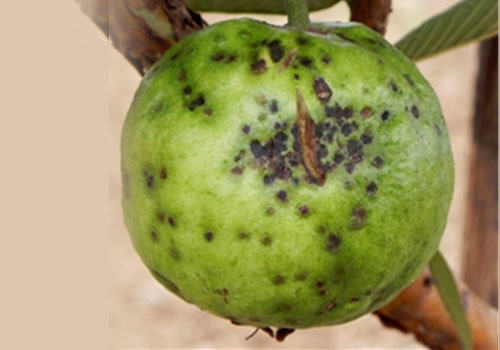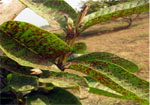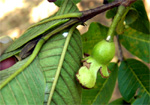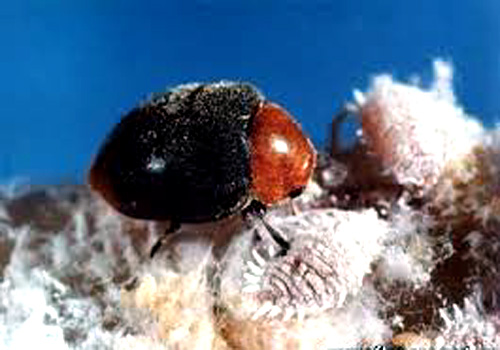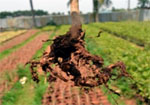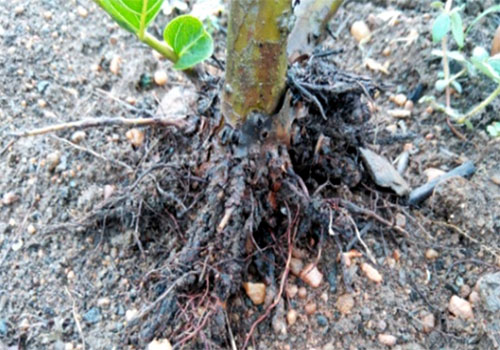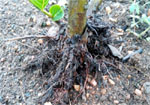Guava - Pest management
 Tea
mosquito bug
Tea
mosquito bug
Biology:
Eggs: Eggs are elongate and slightly curved with a pair of filaments, egg period 7-8 days. Nymph: Nymphal period 14-16 days. Life cycle completed in 22-25 days. Adult: Reddish brown bug with black head, red thorax, black and white abdomen, and a knob like process on mid-dorsal thorax.
- Nymphs and adults make punctures on petiole, tender shoots and fruits
- Brownish – black necrotic patches develop on the foliage
- Elongate streaks and patches develop on shoots
- Corky scab formation on fruits.
Natural enemies of tea mosquito bug: Predators:
Reduviid bug, Oxyopes sp. and Green lacewing.


